Ba2.7
 |
 |
 |
 |
|
Ba2-16 → 2 * 16 =
32 |
Ba2-17 |
Ba2-18 (65) |
Ba2-19 |
|
e kua haú ia |
i to manu rere |
ko te tagata kua mau - i te tao
hia |
ko te moa |
|
To.
1. Particle sometimes used with the
article in ancient legends; i uto to te hau,
the ribbon was in the float. 2. To rise (of the sun)
during the morning hours up to the zenith: he-to
te raá. Vanaga. 1. Of. T Pau., Ta.: to,
of. Mgv.: to, genitive sign. Mq.: to,
of, for. 2. This, which. Churchill. Mgv.: To,
to make a canoe of planks. Mq.: to, to build
a canoe. Sa.: to, to build. Churchill.
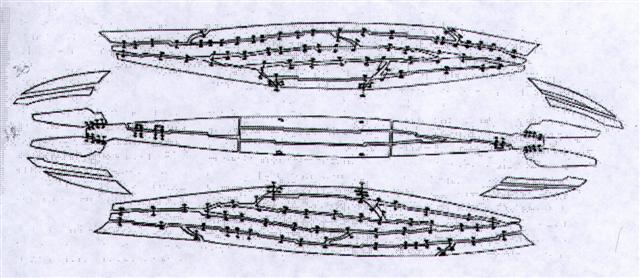 |
|
CLOSE TO THE
FULL MOON: |
|
9h
(137.0)
σ¹ Ursa Majoris (137.0), κ Cancri (137.3),
τ Cancri (137.4),
ALSUHAIL (al Wazn, of the Weight) = λ Velorum
(137.5), σ² Ursa Majoris (137.6), τ Ursa Majoris (137.7), ξ Cancri
(137.8)
*96.0 = *137.4 - *41.4 |
κ Pyxidis (138.0), ε Pyxidis (138.5) |
π
Cancri (139.2),
MIAPLACIDUS =
β
Carinae
(139.3),
TUREIS (Little Shield) =
ι
Carinae
(139.8) |
No star listed (140) |
|
CLOSE TO THE SUN: |
|
DEC 3 (337 = 137 + 200) |
4 |
5 |
6 (140 +
200 = 340) |
|
21h (319.6)
ARMUS =
η
Capricorni
(319.0),
DORSUM =
θ
Capricorni
(319.3),
TSOO = 24 Capricorni
(319.7) |
DRAMASA =
σ
Oct.,
χ
Capricorni (320.0),
ν
Aquarii (320.3),
γ
Equulei (320.6),
ο
Pavonis (320.8) |
α Oct. (321.5), δ
Equulei (321.7),
φ
Capricorni (321.8) |
KITALPHA (Part of a Horse) =
α
Equulei
(322.0),
ALDERAMIN (The Right Arm) =
α
Cephei
(322.9) |
|
Febr 5 (401 = 137 + 264) |
6 |
7 |
8 (140 + 264 =
404) |
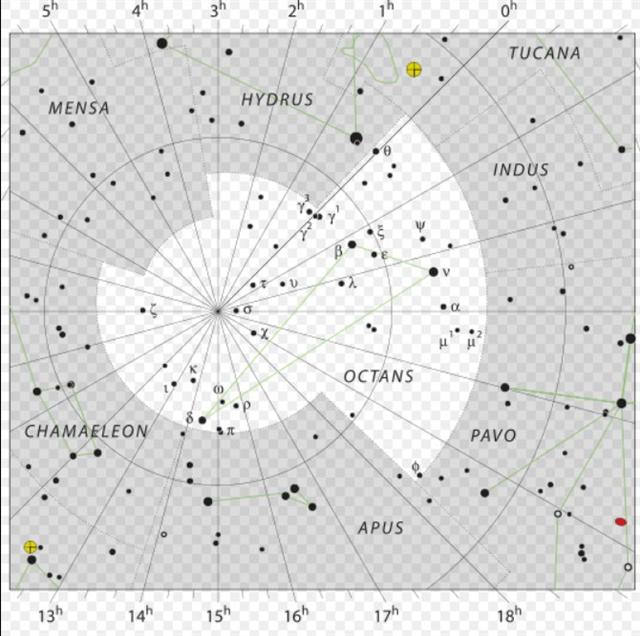 |
Up until now I had been completely unaware of how easy it
was to 'jump to conclusions' regarding the Sun dates at the Golden
Age of the Bull from the stars currently located close to the Full Moon.
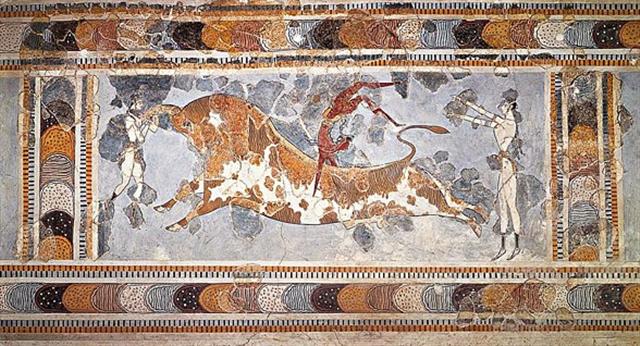
And then onwards, from these golden dates to the current heliacal
dates.
We can now understand why Itzam-Yeh (Ursa Major) was
defeated in 28 May (= MAY 28) - viz. it was because in January 31
(396) the Full Moon could be observed at the right ascension
line of ρ Hydrae (*132.4). For in the Golden Age of the Bull the
corresponding day number would have been 80 + 132 - 64 = 148
(MAY 28). Half a year later, in NOVEMBER 28, was Albali
(the Swallower) and the culmination of Betelgeuze. 332
(NOVEMBER 28) = 132 + 200. Which corresponded to the current
day number 132 + 264 = 396 (January 31).
 |
 |
 |
 |
 |
|
Ba2-20 |
Ba2-21 |
Ba2-22 |
Ba2-23 (70) |
Ba2-24 (64 + 7) |
|
kua hau i tona hau |
E te manu e |
ka kokoti koe |
mai tae vero
hia |
ki to moa |
|
Vero.
To throw, to hurl (a lance, a spear).
This word was also used with the particle kua
preposed: koía kua vero i te matá, he is the
one who threw the obsidian [weapon]. Verovero,
to throw, to hurl repeatedly, quickly (iterative of
vero). Vanaga. 1. Arrow, dart, harpoon,
lance, spear, nail, to lacerate, to transpierce (veo).
P Mgv.: vero, to dart, to throw a lance, the
tail; verovero, ray, beam, tentacle. Mq.:
veó, dart, lance, harpoon, tail, horn. Ta.:
vero, dart, lance. 2. To turn over face down. 3.
Ta.: verovero, to twinkle like the stars.
Ha.: welowelo, the light of a firebrand
thrown into the air. 4. Mq.: veo, tenth month
of the lunar year. Ha.: welo, a month (about
April). Churchill. Sa.: velo, to cast a spear
or dart, to spear. To.: velo, to dart. Fu.:
velo, velosi, to lance. Uvea: velo,
to cast; impulse, incitement. Niuē:
velo, to
throw a spear or dart. Ma.: wero,
to stab, to pierce, to spear. Ta.: vero,
to dart or throw a spear. Mg.: vero,
to pierce, to lance. Mgv.: vero,
to lance, to throw a spear. Mq.: veo,
to lance, to throw a spear. Churchill 2.
... I became
curious about this star ... called Nuutuittuq
[= 'never moves'] ... So, on the lee side of our
uquutaq (a snow windbreak) I positioned a
harpoon pointing directly at this particular star to
see if it would move. In the morning I checked it
and discovered that the Tukturjuit (Ursa
Major) had changed their position completely but the
harpoon still pointed at this star ... I had
discovered the stationary star
...
... A vestige of
the practice of putting the king to death at the end
of a year's reign appears to have survived in the
festival called Macahity, which used to be
celebrated in Hawaii during the last month of the
year. About a hundred years ago a Russian voyager
described the custom as follows: 'The taboo
Macahity is not unlike to our festival of
Christmas. It continues a whole month, during which
the people amuse themselves with dances, plays, and
sham-fights of every kind. The king must open this
festival wherever he is. On this occasion his
majesty dresses himself in his richest cloak and
helmet, and is paddled in a canoe along the shore,
followed sometimes by many of his subjects. He
embarks early, and must finish his excursion at
sunrise. The strongest and most expert of the
warriors is chosen to receive him on his landing.
The warrior watches the canoe along the beach; and
as soon as the king lands, and has thrown off his
cloak, he darts his spear at him, from a distance of
about thirty paces, and the king must either catch
the spear in his hand, or suffer from it: there is
no jesting in the business. Having caught it, he
carries it under his arm, with the sharp end
downwards, into the temple or heavoo. On his
entrance, the assembled multitude begin their
sham-fights, and immediately the air is obscured by
clouds of spears, made for the occasion with blunted
ends. Hamamea (the king) has been frequently
advised to abolish this ridiculous ceremony, in
which he risks his life every year; but to no
effect. His answer always is, that he is as able to
catch a spear as any one on the island is to throw
it at him ... |
|
CLOSE TO THE
FULL MOON: |
|
θ
Pyxidis (141.5),
MARKAB VELORUM =
κ
Velorum
(141.5),
AL MINHAR AL ASAD (The Nose of the Lion) =
κ
Leonis
(141.6),
λ
Pyxidis (141.9) |
Star-25 (Horse) /
ANA-HEU-HEU-PO-5 (Pillar where debates were held)
ALPHARD (The Horse) =
α
Hydrae
(142.3),
ω
Leonis (142.6),
τ¹
Hydrae (142.7) |
Al Tarf-7 (The End)
ψ
Velorum (143.3),
ALTERF =
λ
Leonis,
τ²
Hydrae (143.4),
ξ
Leonis (143.5)
*102.0 = *143.4 - *41.4 |
A Hydrae
(144.1)
VEGA (α Lyrae) |
Creation of our present world
UKDAH (Knot) = ι
Hydrae (145.4),
κ
Hydrae (145.5),
SUBRA =
ο
Leonis
(145.8)
ALPHEKKA MERIDIANA
*104.0
= *145.4 - *41.4 |
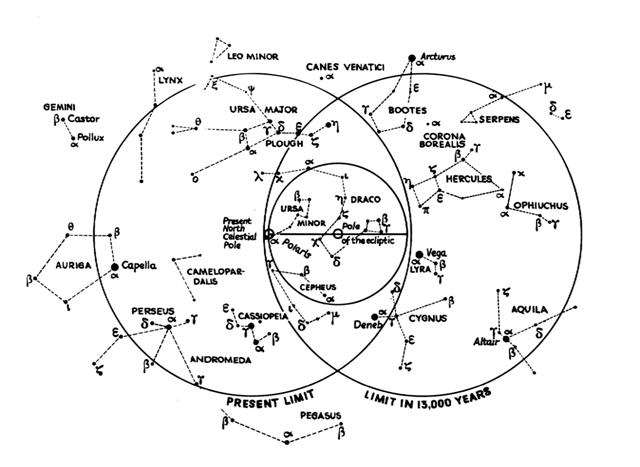 |
|
CLOSE TO THE SUN: |
|
DEC 7 |
8 |
9 (343 = 7 * 7
* 7) |
10 |
11 (345 = 145 + 200) |
|
DAI =
ι
Capricorni
(323.5),
β
Equulei (323.8) |
γ
Pavonis (324.1),
YAN =
ζ
Capricorni
(324.6) |
Al Sa'd al Su'ud-22 (Luckiest of the Lucky) /
Emptiness-11 (Rat)
TSIN = 36 Capricorni
(325.2),
ALPHIRK (The Flock) =
β
Cephei
(325.7),
SADALSUD =
β
Aquarii,
ξ
Gruis (325.9) |
No star listed (326) |
CASTRA
= ε Capricorni
(327.2),
BUNDA = ξ
Aquarii
(327.5)
SIRIUS (α
Canis Majoris) |
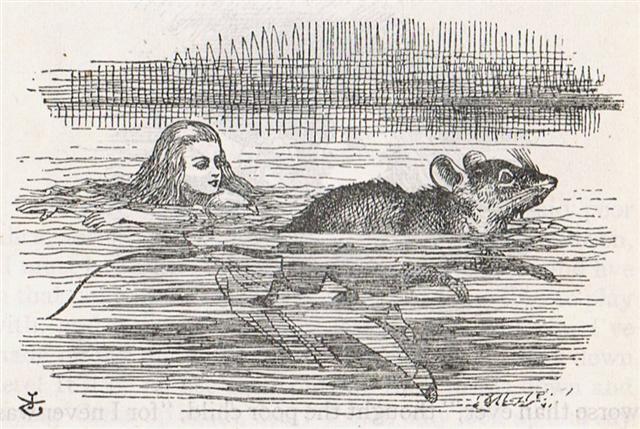
... In China, with Capricornus,
Pisces, and a part of Sagittarius, it [Aquarius]
constituted the early Serpent, or Turtle, Tien
Yuen; and later was known as Hiuen Ying,
the Dark Warrior and Hero, or Darkly Flourishing
One, the Hiuen Wu, or Hiuen Heaou, of
the Han dynasty, which Dupuis gave as Hiven Mao.
It was a symbol of the emperor Tchoun Hin, in
whose reign was a great deluge; but after the
Jesuits came in it became Paou Ping, the
Precious Vase. It contained three of the sieu, and
headed the list of zodiac signs as the Rat,
which in the far East was the ideograph for 'water',
and still so remains in the almanacs of Central
Asia, Cochin China, and Japan
... |
|
Febr 9 |
10 |
11 (343 + 64) |
12 (408) |
13 (145 + 264) |
|
... On February 9
the Chorti Ah K'in, 'diviners', begin the
agricultural year. Both the 260-day cycle and the
solar year are used in setting dates for religious
and agricultural ceremonies, especially when those
rituals fall at the same time in both calendars. The
ceremony begins when the diviners go to a sacred
spring where they choose five stones with the proper
shape and color. These stones will mark the five
positions of the sacred cosmogram created by the
ritual. When the stones are brought back to the
ceremonial house, two diviners start the ritual by
placing the stones on a table in a careful pattern
that reproduces the schematic of the universe. At
the same time, helpers under the table replace last
year's diagram with the new one. They believe that
by placing the cosmic diagram under the base of God
at the center of the world they demonstrate that God
dominates the universe. The priests place the stones
in a very particular order. First the stone that
corresponds to the sun in the eastern, sunrise
position of summer solstice is set down; then the
stone corresponding to the western, sunset position
of the same solstice. This is followed by stones
representing the western, sunset position of the
winter solstice, then its eastern, sunrise position.
Together these four stones form a square. They sit
at the four corners of the square just as we saw in
the Creation story from the Classic period and in
the Popol Vuh. Finally, the center stone is placed
to form the ancient five-point sign modern
researchers called the quincunx
...
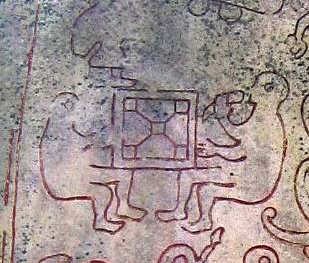 |
 |
 |
 |
 |
 |
 |
|
Ba2-25 (72) |
Ba2-26 |
Ba2-27 |
Ba2-28 |
Ba2-29 |
Ba2-30 (77) |
|
ku hukahuka
hia ia - ki to maro |
ko te marama o te nuku |
kua haú i te haú o te nuku |
kua tuu i te hau o te heu |
E tagata ere e, ka uga koe |
ki to maitaki |
|
... ku hú á te huka-huka, ku
herohero á i roto i te ahi, burning wood shows
red in the fire ...
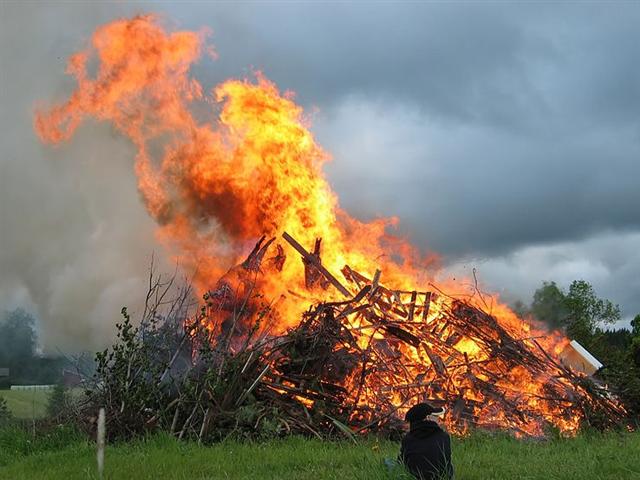
225 (August 13) - 64 = 161 (JUNE
10): Midsummer is the flowering
season of the oak, which is the tree of endurance
and triumph, and like the ash is said to 'court the
lightning flash'. Its roots are believed to extend
as deep underground as its branches rise in the air
- Virgil mentions this - which makes it emblematic
of a god whose law runs both in Heaven and in the
Underworld ... The month, which takes its name from
Juppiter the oak-god, begins on June 10th and ends
of July 7th. Midway comes St. John's Day, June 24th,
the day on which the oak-king was sacrificially
burned alive. The Celtic year was divided into two
halves with the second half beginning in July,
apparently after a seven-day wake, or funeral feast,
in the oak-king's honour ... |
|
CLOSE TO THE
FULL MOON: |
|
5 Imix 9 Kumk'u
Rishu A.-13 (Head of the Lion)
ψ Leonis (146.4),
RAS ELASET AUSTRALIS = ε Leonis
(146.6)
*105.0 = *146.4 - *41.4 |
VATHORZ PRIOR = υ Carinae
(147.9) |
υ¹
Hydrae (148.4), RAS ELASET BOREALIS (Northern Head
of the Lion) =
μ
Leonis
(148.7)
*107.0 = *148.4 - *41.4 |
TSEEN KE (Heaven's Record) =
φ
Velorum
(149.9) |
ν
Leonis (150.1), π Leonis (150.6) |
υ²
Hydrae (151.8) |
|
CLOSE TO THE SUN: |
|
DEC 12 |
13 |
14 (348 = 12 *
29) |
15 |
16 (150 + 200) |
17 |
|
Mahar sha hi-na Shahū-26 (Western One in the Tail of
the Goat)
NASHIRA =
γ
Capricorni
(328.0),
ν
Oct. (328.3),
AZELFAFAGE =
π¹
Cygni,
κ
Capricorni (328.7) |
Arkat sha hi-na Shahū-27 (Eastern One in the Tail of
the Goat)
ENIF (The Nose) =
ε
Pegasi, ERAKIS =
μ
Cephei
(329.2),
46 CAPRICORNI, JIH (the Sun) =
κ
Pegasi
(329.3),
ι
Piscis Austrini (329.4),
λ
Capricorni (329.6),
ν
Cephei (329.7),
DENEB ALGIEDI =
δ
Capricorni
(329.8)
*288.0 = *329.4 - *41.4 |
θ
Piscis Austrini (330.1),
λ
Oct.
(330.7) |
KUH (Weeping) =
μ
Capricorni (331.4),
γ
Gruis (331.5)
*290.0 = *331.4 - *41.4 |
No star listed (300 + 32) |
η Piscis Austrini (333.4)
*292.0 = *333.4 - *41.4 |
|
2-14 (146 +
264) |
Febr 15 (411) |
16 (365 + 31 +
16) |
17 (14 * 29½) |
(414 → Bharani) |
19 |
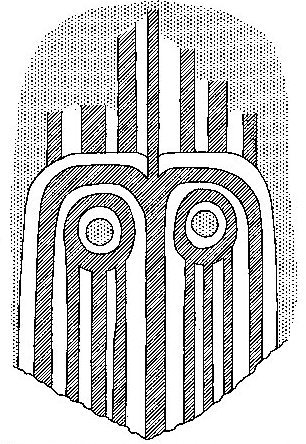 |
 |
 |
 |
 |
|
Ba2-31 |
Ba2-32 |
Ba2-33 (80) |
Ba2-34 |
|
mai tae hahaú ia |
i te nuku roa |
ma to humu |
kua oho te rima |
|
Humu. 1. Tattooing on the
feet. (Cf. Ta.: umu, ornament.) 2. (umu).
3. Mq.: To attach, to tie. Ha.: humu, to
fasten together by sewing. Churchill. ...
Anciently planks were sewn together (humu) when
creating a canoe (to) ...
|
 |
 |
19 |
 |
 |
|
Ba2-13 |
Ba2-14 |
Ba2-33 |
Ba2-34 |
...
These 20 days reminded me of 20-dag Knut
which in Sweden comes 20 days after Christmas Eve -
because the male name Knut means Knot, which is to tie (humu).
Here the Christmas Tree should be 'danced out' ...
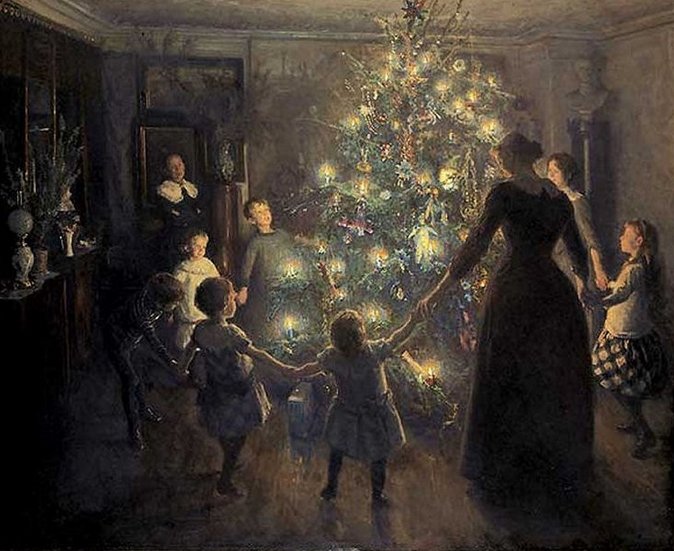 |
|
CLOSE TO THE
FULL MOON: |
|
Al Jabhah-8 (Forehead) /
Maghā-10 (Bountiful) /
Sharru-14 (King)
10h (152.2)
AL JABHAH =
η
Leonis (152.4),
REGULUS (Little KIng) =
α
Leonis
(152.7)
*111.0 = *152.4 - *41.4 |
λ Hydrae (153.2) |
ADHAFERA =
ζ Leonis,
TANIA BOREALIS (Northern Gazelle) =
λ Ursae Majoris, SIMIRAM = ω Carinae
(154.7) |
ALGIEBA (The Mane) = γ Leonis,
q Carinae (155.5) |
|
... From a point
a little to the west of ζ
[Adhafera, ζ Leonis] and
not much farther from γ -
when first observed the radiant point was in Cancer
- issue the Leonids, the meteor stream of
November 9th to 17th, its maximum now occurring on
the 13th to 14th, which about every thirty-three
years has furnished such wonderful displays, the
last in 1866 and the next due in 1899. Their first
noticed appearance may have been in the year 137,
since which date the stream has completed fifty-two
revolutions. According to Theophanes of Byzantium,
the shower was seen from there in November, 472; but
the late Professor Newton, our deservedly great
authority on the whole subject of meteors, commenced
his list of the Leonids with their appearance on the
13th of October, 902, the Arabian Year of the Stars,
during the night of the death of King Ibrahim ben
Ahmad, and added: It will be seen that all these
showers are at intervals of a third of a century,
that they are at a fixed day of the year, and that
the day has moved steadily and uniformly along the
calendar, at the rate of about a month in a thousand
years ...
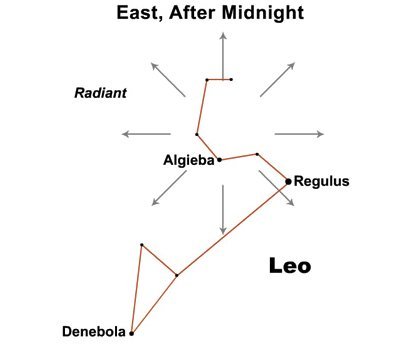 |
|
CLOSE TO THE SUN: |
|
DEC 18 |
19 |
20 (354 = 154 +
200) |
SOLSTICE |
|
22h
(334.8)
KAE UH (Roof) = ο Aquarii
(334.0),
AL KURHAH (White Spot) = ξ Cephei (334.4),
SADALMELIK (Lucky King) = α Aquarii,
AL DHANAB (The Tail) = λ Gruis
(334.6), ι Aquarii, ν Pegasi (334.7)
*293.0 = *334.4 - *41.4 |
ι
Pegasi (335.0),
ALNAIR (The Bright One) =
α
Gruis
(335.1),
μ
Piscis Austrini,
υ
Piscis Austrini (335.3),
WOO (Pestle) =
π
Pegasi
(335.7),
BAHAM =
θ
Pegasi (Good Luck of the Two Beasts),
τ
Piscis Austrini (335.8) |
ζ
Cephei (336.2),
λ
Cephei (336.3), -/270 Lac.
(336.7), λ Piscis Austrini (336.8) |
μ
Gruis (337.0),
ε
Cephei (337.2), 1/325 Lac. (337.3),
ANCHA (Hip) =
θ
Aquarii (337.4),
ψ
Oct.
(337.5), α Tucanae (337.9)
*296.0 = *337.4 - *41.4
*337.4 = *169.4 (Coxa, the Hip in Leo) + *168.0 |
|
Febr 20 |
21 (365 + 31 +
21) |
22 (154 + 264) |
Terminalia
(419) |
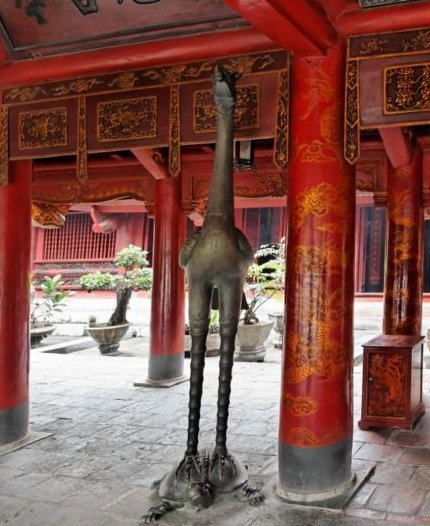
... Horapollo, the grammarian of Alexandria, about
AD 400, tells us that the crane was the symbol of a
star-observer in Egypt
... Grus has as an alternative name Flamingo
(a name which sounds quite similar to that of the
bird Phoenix) which obviously is based on 'flame'.
Phoenicopterus (the Flamingo) is
characterized by its red feathers. Wikipedia: ...
from Greek
φοινικόπτερος
meaning 'purple wing'. Purple is the colour for
kings and 'phoenix' should therefore mean 'purple,
the colour of the king' ... |
|
... It must be admitted, however, that the task of
raising the sky was not always a long and arduous
one. In the New Hebrides of Melanesia the sky was
formerly so low overhead that a woman who was
pounding roots in a mortar happened to strike the
sky with her pestle. Greatly annoyed at the
interruption she looked up and cried angrily, 'Go on
up higher!' Whereat the sky meekly obeyed her. What
actually happened probably was that the woman struck
the low house roof with her pestle and cried angrily
to her husband, 'If you don't raise that roof
higher, I won't cook you another meal!' thus giving
a strong impuls to the development of the science of
architecture
... |
 |
 |
 |
 |
 |
|
Ba2-35 → 115 |
Ba2-36 → 8 * 29½ |
Ba2-37 (84) |
Ba2-38 → 184 |
Ba2-39 → 2 * 39 = 78 |
|
ki te ariki - kua tere ko te heu
ia |
kua hanau |
ki te koitia ia |
kua vero |
koia ki te moa |
|
Iti. Little, small, medium;
iti atu, less; iti no, small quantity,
rare; no iti, superficial. Itia,
shrunken. Itiiti, scanty, slim; hare
itiiti no, cabin; itiiti noa, mediocre,
mediocricity. Hakaiti, to make small, to
lessen, to weaken, to impoverish, to thin out, to
reduced, to diminish, to retrench, to curtail, to
subdue, to mitigate, to abate. Hakaitiiti, to
squat, to croach. P Mgv.: iti, small. Mq.:
iti, id. Ta.: iti, id. Churchill.
Ia. Personal pronoun: he,
she, it; often preceded in the nominative by e: e
îa; and in the other cases by a; a îa, ki a
îa. Vanaga. 1. To, toward; i muri oo na,
to accompany. P Mgv.: ia, a sign of the
dative before proper names. Mq.: ia, to (used
before pronouns and proper names of persons). Ta.:
ia, to, toward (same usage). Sa.: 'ia,
id. To.: kia, id. Fu.: kia, id. Niuē:
kia, id.
See also kia
2. The two differ only as differ the simple
prepositions, i
and ki,
locative and objective. They agree in restriction to
the names of persons and personal pronouns. In my
comprehension of the use of kia
it becomes somewhat clear that it is not a simple
preposition but a phrase locution (ki-a)
of preposition and demonstrative object abstractely
stated and then immediately particularized by the
name in apposition. This comports with another idiom
indicating that persons are considered superior to
parsing, an idea which must, of course, be held by
such as have a proper respect of persons:
'o ai lana igoa in
Samoan, o dhei na ya-dhana
in Viti, in each case 'who is his name?' instead of
what. In this understanding of the phrase
'ia Malietoa
signifies 'to that one, viz., Malietoa'. 2. In order
to, so that. Ta.: ia,
in order that. 3. Third personal prononun singular;
ko ia,
he, she, yes, it is, this; ka ko ia,
a greeting T.; ko ia a,
oneself, particualarly, precisely; no ia,
his, her. P Pau.: ia,
he, she, it. Mgv.: ia,
id.; ko ia,
that is it. Mq.: ia,
he, she, it, that; ò ia,
it is. Ta.: ia,
o ia, he,
she, it, that. Churchill.
Tia.(Tiha
G) .To sew. T Mgv.: tia, to prick, to pierce,
to stick in. Churchill. Ta.: tia, the lower
belly. Mq.: tia-kopu, pubes. Ma.: tia,
the lower abdomen. Tiahonu, to piece
together. Mq.: tuhonu, to mend, to patch.
Ma.: tuhonu, to join. Churchill. Mq.:
tiaha, drinking cup. Ha.: kiaha, a cup, a
mug. Tikao, to dig out, to disembowel. Ma.:
tikaro, to dig out of a hole. Churchill. |
|
CLOSE TO THE
FULL MOON: |
|
TANIA AUSTRALIS (Southern Gazelle) =
μ
Ursae Majoris
(156.0),
GHOST OF JUPITER = NGC3242 Hydrae
(156.8 |
Extended Net-26b (Ox)
μ
Hydrae
(157.1) |
Maru-sha-arkat-Sharru-15 (4th Son behind the King)
SHIR (Possessing Luminous Rays) = ρ Leonis
(158.9) |
p Carinae (159.3) |
φ Hydrae (160.3) |
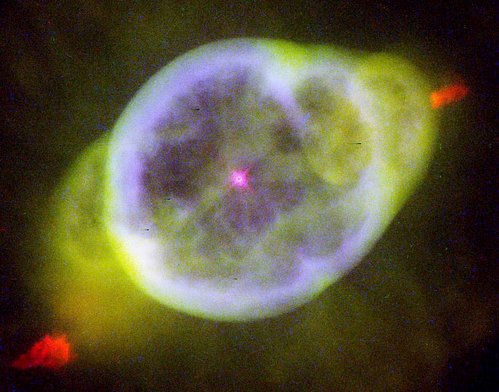 |
|
CLOSE TO THE SUN: |
|
DEC 22 |
23 |
CHRISTMAS EVE |
25 |
26 (360 = 160 +
200) |
|
Al Sa'ad al Ahbiyah-23 (Lucky Star of Hidden Things)
/
Shatabisha-25 (Comprising a Hundred Physicians)
ε
Oct. (338.1),
ρ Aquarii
(338.2), 2/365 Lac.
(338.5),
SADACHBIA =
γ
Aquarii
(338.6),
π
Gruis (338.9) |
β/172
Lac. (339.2),
4/1100 Lac. (339.4),
π
Aquarii
(339.5)
*298.0 = *339.4 - *41.4
CASTOR (α Gemini)
|
δ
Tucanae (340.1),
ρ
Cephei (340.2),
ν
Gruis (340.3),
ζ
Aquarii,
δ
Gruis (340.4),
5/1100 Lac.
(340.7), σ Aquarii, 6/650 Lac. (340.9)
*299.0 = *340.4 - *41.4
PROCYON (α Canis
Minoris)
|
υ Oct. (341.0), α/91 Lac. (341.1),
HOMAN (Hero) = ζ Pegasi,
β Piscis Austrini (341.2), ν Tucanae (341.5),
υ Aquarii
(341.9) |
η Aquarii
(342.1),
σ Gruis
(342.4),
SITULA (Water-jar) = κ Aquarii
(342.7)
*301.0 = *342.4 - *41.4 |
|
Bissextum (420) |
Febr 25 → 225 |
26 |
2-27 → π |
28 (160 + 264) |
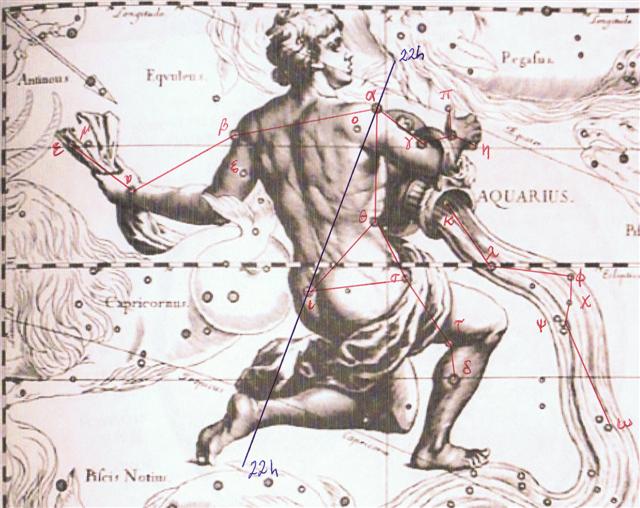 |
As if by coincidence the last moa is located
at heliacal Situla, the Urn of Aquarius, i.e. in day 360
according to the Golden Age of the Bull.
.jpg)
|





















.jpg)